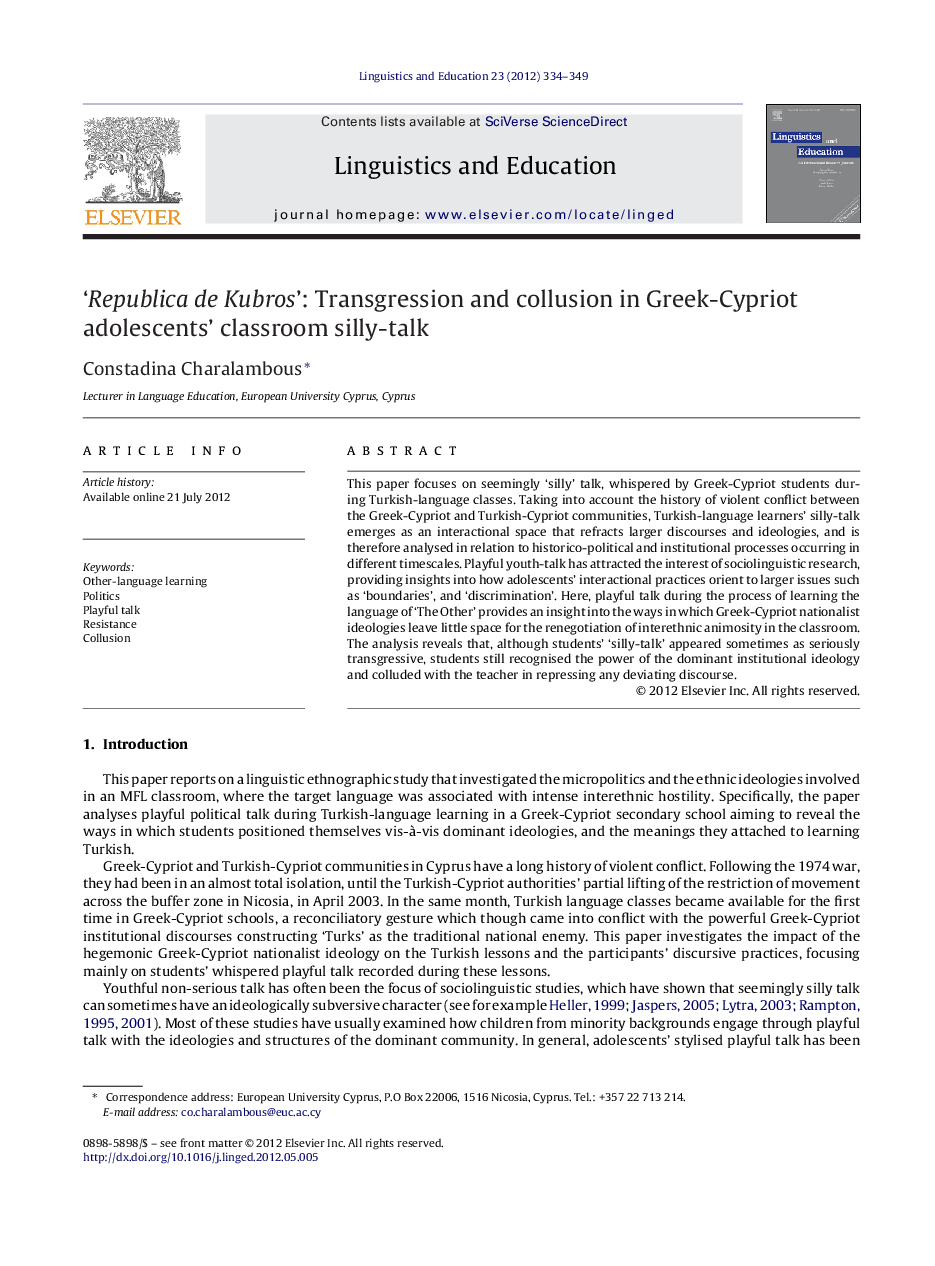| Article ID | Journal | Published Year | Pages | File Type |
|---|---|---|---|---|
| 366294 | Linguistics and Education | 2012 | 16 Pages |
This paper focuses on seemingly ‘silly’ talk, whispered by Greek-Cypriot students during Turkish-language classes. Taking into account the history of violent conflict between the Greek-Cypriot and Turkish-Cypriot communities, Turkish-language learners’ silly-talk emerges as an interactional space that refracts larger discourses and ideologies, and is therefore analysed in relation to historico-political and institutional processes occurring in different timescales. Playful youth-talk has attracted the interest of sociolinguistic research, providing insights into how adolescents’ interactional practices orient to larger issues such as ‘boundaries’, and ‘discrimination’. Here, playful talk during the process of learning the language of ‘The Other’ provides an insight into the ways in which Greek-Cypriot nationalist ideologies leave little space for the renegotiation of interethnic animosity in the classroom. The analysis reveals that, although students’ ‘silly-talk’ appeared sometimes as seriously transgressive, students still recognised the power of the dominant institutional ideology and colluded with the teacher in repressing any deviating discourse.
► The paper looks at Greek-Cypriot teenagers learning the language of the ‘enemy’. ► It focuses on learners’ whispered silly-talk during the Turkish-language lesson. ► It examines the ideological functions of silly-talk in the classroom. ► Through silly-talk learners parodied and resisted the power of dominant ideologies. ► Still, they also colluded with the teacher in repressing deviating discourses.
